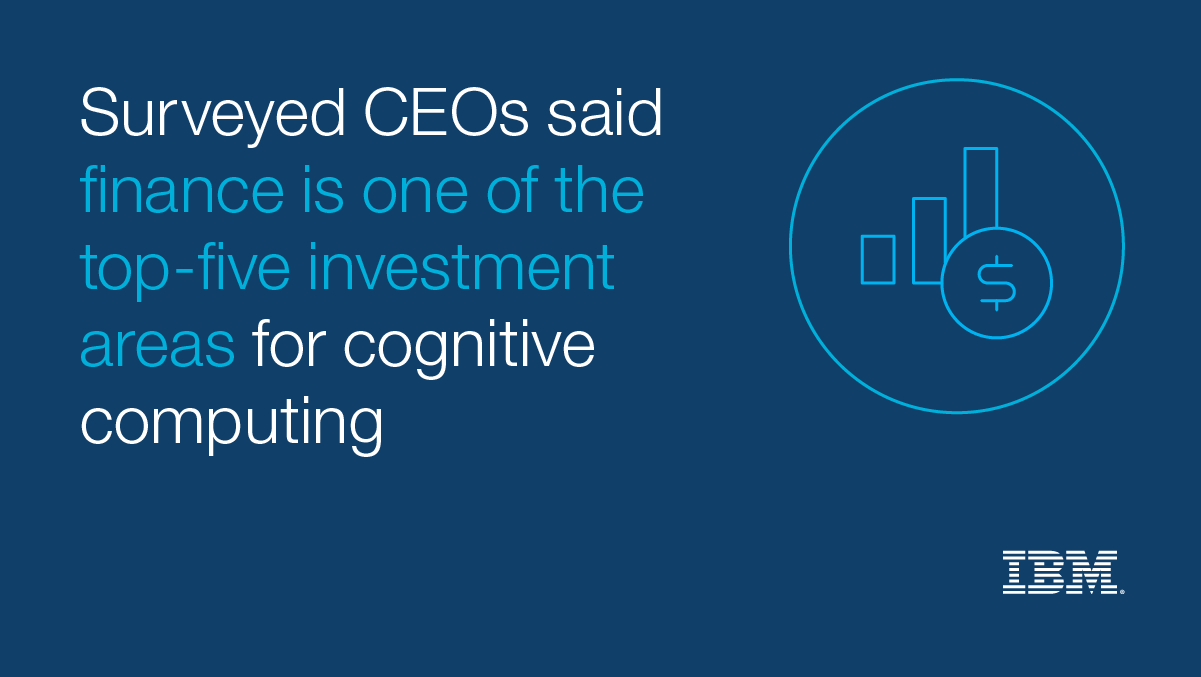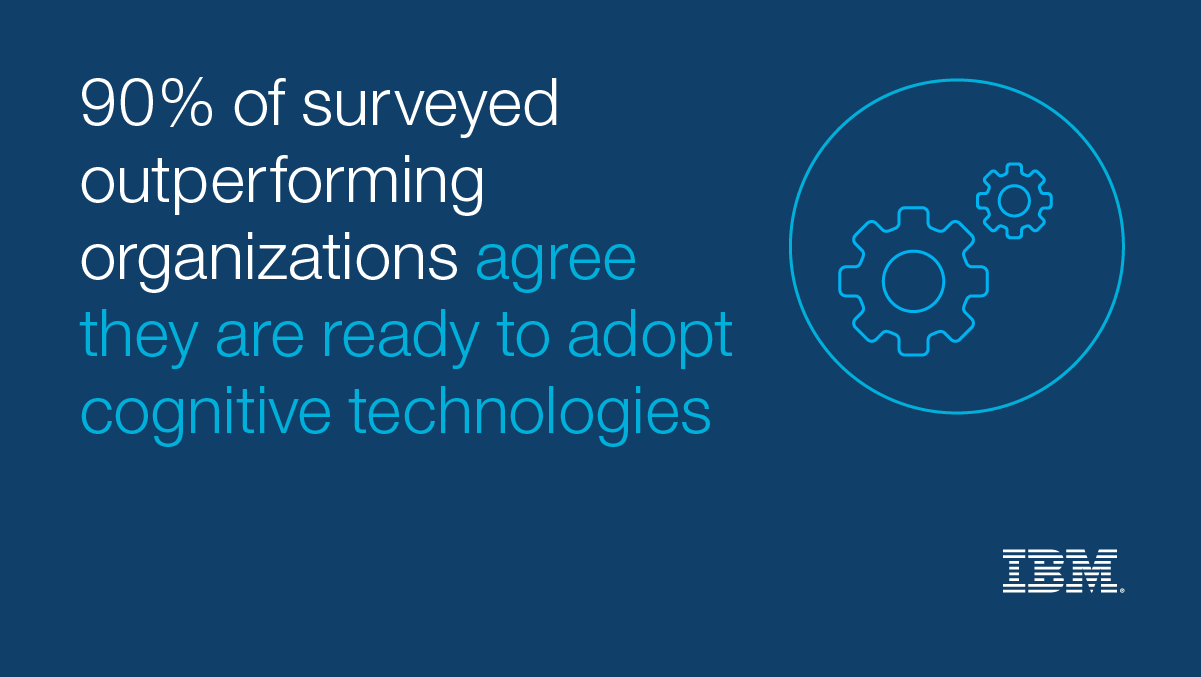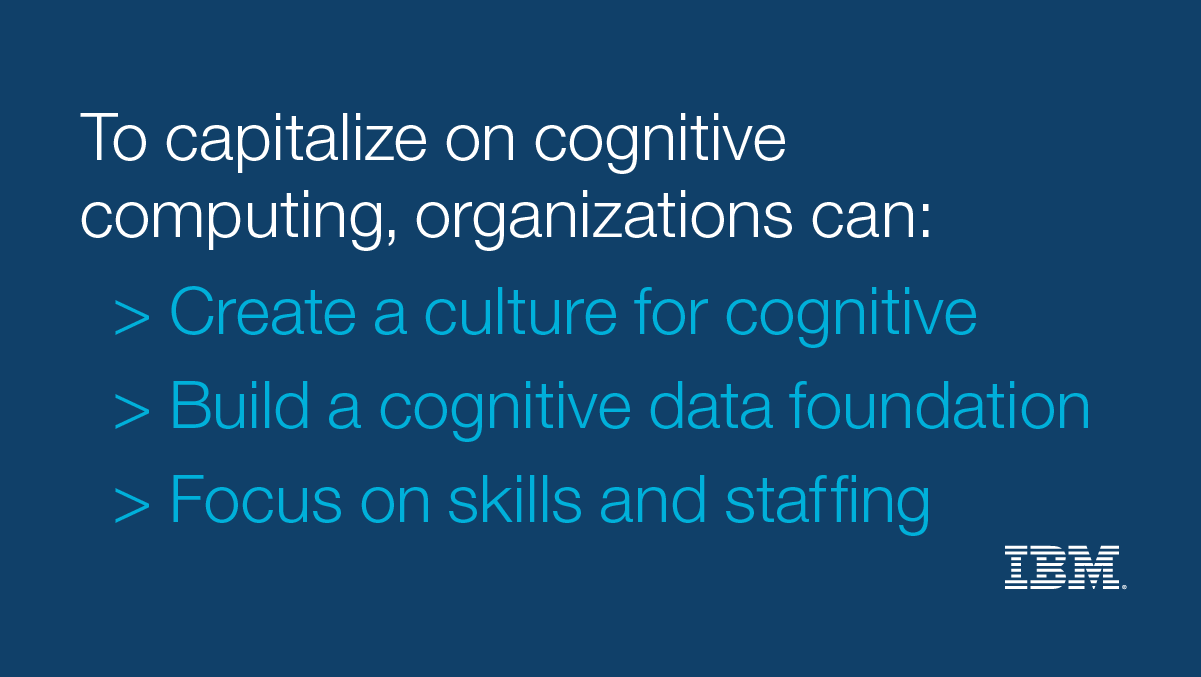Pressure on chief financial officers (CFOs) to enable enterprise agility and help their businesses make better decisions is intensifying.
Finance organizations must now proactively manage business growth and risk. Artificial intelligence (AI) can help CFOs improve operational efficiency and create the potential for faster profitable growth.
According to surveyed chief executive officers (CEOs), finance is one of the top-five investment areas for AI. Some organizations – we call them the finance “leaders” – already have established operational and analytical uses for cognitive technologies and understand their value. And it’s paying off.

So who are the leaders? Researchers working with the IBM Institute for Business Value identified them while surveying over 6,000 C-suite and heads of functions worldwide – including 524 CFOs. These leaders self-reported that they have outperformed on revenue growth, efficiency and profitability over the past three years.
By learning from these leaders, other finance organizations can understand the potential to excel in the cognitive era.
Finance leaders create a culture for AI
Leaders are more likely than others to embrace learning and the science of insight. They also are more likely to foster a culture where that knowledge is infused into decision making. Ninety percent of leaders indicate their organizations are ready to adopt cognitive computing, compared to 59 percent of all others.
Leaders say they expect to use cognitive technologies to reap rewards in specific activities. In operations improvement, leaders say cognitive computing can improve efficiency in order-to-cash and improve effectiveness in procure-to-pay. In performance management, leaders indicate that cognitive computing can reduce risk in cash management and increase insights for strategic and operational planning, budgeting and forecasting. For growth, leaders say they believe cognitive technologies will help them improve decision-making in evaluating mergers and acquisitions opportunities.
Given the potential benefits, leaders are more likely to adopt cognitive computing sooner than their peers. Compared to others in our study, three times more leaders indicate they will implement cognitive within two years.

Finance leaders build a cognitive data foundation
Finance has historically used huge amounts of financial transaction data, which often is challenging and time consuming. But now, a tsunami of data comes from different sources, such as external market-centric data, competitive data, macro-economic data, social media and weather data. And this non-financial data needs to be integrated with the financial data to create new insights.
Our study shows that leaders outpace their peers in the adoption of the components needed for a modern data infrastructure. These leaders have indicated they have invested twice as much as others in cloud-based data storage or analytics services, streaming data acquisition, shared operational information, data curation services and distributed storage and processing. In addition, leaders are focused on leveraging more external data: mobile application data, social media and customer-generated data.
Finance leaders focus on skills and staffing
Leaders drive clear data governance through a chief data officer (CDO) or an equivalent position. They also supplement their CDO with a business-driven information-governance committee.
Leaders have adopted the use of centers of excellence for analytics and cognitive computing to create service scalability. In terms of scope, leaders are holistically placing many finance activities into a center to focus on growth, manage risks and improve efficiency.
With the transition to cognitive computing, leaders realize they need “new collar” talent to move forward. The leaders are targeting specific skills: statisticians, the best data analysts, data visualization specialists, advanced mathematical modelers and big data-related information management specialists.

Read the full report, “The cognitive CFO: How ‘leaders’ are increasing finance IQ,” to learn how you can become a finance leader.
Meet the author


